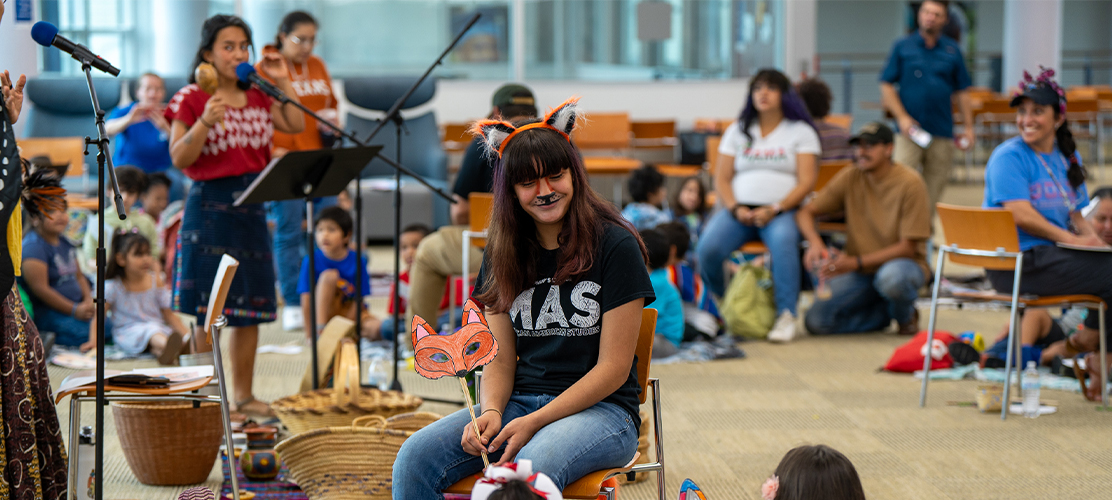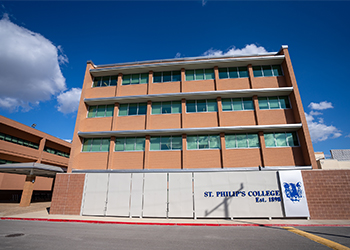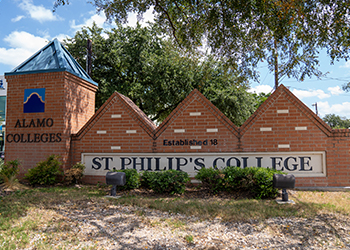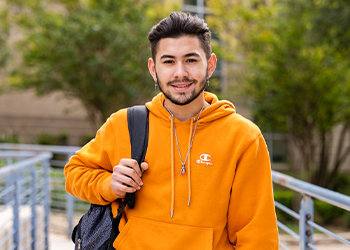
Mexican-American Studies
Teach courses pertaining to the culture and development of an area, an ethnic group, or any other group, such as Latin American studies, women's studies, or urban affairs. Includes both teachers primarily engaged in teaching and those who do a combination of teaching and research.
|
Jobs available locally 10,447 |
Demand Locally +2 % |
Annual Wage Range $50,894 – $213,199 |
Teach courses pertaining to recreation, leisure, and fitness studies, including exercise physiology and facilities management. Includes both teachers primarily engaged in teaching and those who do a combination of teaching and research.
|
Jobs available locally 10,447 |
Demand Locally +2 % |
Annual Wage Range $50,894 – $213,199 |
Teach one or more subjects to students at the middle, intermediate, or junior high school level.
|
Jobs available locally 4,882 |
Demand Locally +2 % |
Annual Wage Range $52,300 – $73,730 |
Program Level:
Pre-Majors/Transfer
Department:
Social and Behavioral Sciences
Institute:
Creative & Communication Arts
College:
SPC
What is Mexican-American Studies?
The St. Philip's College Mexican American Studies Program is an interdisciplinary program that focuses on the Mexican-American experience. It seeks to highlight the cultural, intellectual, historical, artistic, and political legacies of people of Mexican descent.
The Mexican-American Field of Studies program is geared to guide students in exploring and examining the lives, cultural values, and history of the Mexican-American experience. Mexican-American Studies bring together several various disciplines and themes such as history, humanities, art, music, and literature.
What will I learn?
This interdisciplinary approach allows students to have a multi-perspective understanding of the Mexican-American historical influence on human societies and culture.
What can I do with this course of study?
Mexican-American Studies prepares students for transfer to any Baccalaureate program while gaining important insight into culture and its relevance within any career path.
What's special about the program?
Courses in Mexican-American FOS will transfer throughout Texas and the U.S. to pursue a Baccalaureate degree.
Mexican-American Studies Events
Throughout the academic year, the MAS program organizes various cultural, artistic, ecological, and education events. One of our annual events includes the Dia de los Niños Celebration and book giveaway, where we host students from SPC’s Child Development Center and Bowden Academy.
Coalition for Regenerative Ecologies and Agriculture (CREA)
The Coalition for Regenerative Ecologies and Agriculture (CREA) is a transdisciplinary project co-led by faculty at St. Philip's College and The University of Texas at San Antonio that seeks to establish a transnational collective that will support regenerative ecological and agricultural practices with farms and cultural organizations based in San Antonio, Texas and Veracruz, Mexico. As such, the program seeks to deepen the understanding and practice of regenerative methods designed to restore degraded land and increase biodiversity.
CREA is generously funded by a United States Department of Agriculture (USDA) Collaborative Hispanic Serving Institutions (HSI) Education Grant.
- Overview: The Fellows Program will provide 5 students from SPC with the opportunity to learn more about regenerative agriculture and gain some field experience. Each month, fellows will participate in a Fellows Platica or Field Session at local collaborating farms to develop an understanding of ethical and practical contexts for regenerative
agriculture.
Benefits to Becoming a Fellow
- Gain experience with regenerative agriculture, ecology, and environmental justice
- Build professional and academic connections with community leaders and organizations devoted to supporting regenerative agriculture and environmental justice in San Antonio and Mexico
- Fellows will receive a stipend of $1500
How to Apply
Complete and submit the online application. Questions? Email Marissa Ramírez at mramirez487@alamo.edu.
Overview: Veracruz is Mexico's oldest, largest, and most significant port city. It is the site where Hernán Cortés first made contact with the Americas in 1519; where enslaved peoples from Africa first arrived in Mexico; and where a coalition of enslaved African and Indigenous peoples rebelled and established one of the first free communities in the Americas. Today, it is a region characterized by a blend of cultures from Indigenous, Spanish, and Afro-Caribbean sources, which is particularly found in culinary, cultural, and artistic expressions. As one of the largest agricultural producers and one of the most biodiverse states in Mexico, Veracruz has also become known for its regenerative agricultural and ecological projects.
Benefits to Participating in the Study Abroad Program
Through a five-week program (one week in San Antonio, followed by four weeks in Veracruz, Mexico), students will gain technical knowledge and skills in:
- Regenerative agriculture (vetiver systems, agroforestry, permaculture, beekeeping, keyline design, composting)
- Benefits of regenerative agriculture related to wildlife biodiversity (with emphasis on birds, water and soil quality and ecosystem health)
- Community-engaged methodologies (ecocultural, Indigenous, and intersectional qualitative research praxis)
- Field and digital field methods (drones, photovoltaics, cameras/photogrammetry, soundscapes, field wildlife biology)
How to Apply
Step 1: Complete and submit the Study Abroad online application
Step 2: Complete and submit the Supplemental Essay Questions
Questions? Email Marissa Ramírez.
Overview: Students who have completed the Coalition for Regenerative Ecologies and Agriculture (CREA) Fellows program or participated in the Coalition for Regenerative Ecologies and Agriculture (CREA) Study Abroad program are also eligible to complete paid 6-8 week internships ($15/hr, up to 20 hrs a week) with local farms and environmental sustainability organizations. These internships will provide students with hands-on experience in areas such as:
- Native landscapes and water conservation projects
- Pollinator habitat restoration in urban settings
- Hands on opportunities to produce food in an urban context
- Regenerative farming solutions for building healthy, nutrient rich soils
- Community engagement to promote healthier communities
Participating organizations may vary from year to year, but include sponsors such as Garcia Street Urban Farm, Eco Centro, and the San Antonio Food Bank.
How to Apply
Complete and submit the online application. Questions? Email Marissa Ramírez at mramirez487@alamo.edu.
Apply Today!
Degrees and Certificates
St. Philip's College programs offer the following degree(s) and certificate(s). View our Course Catalog for more information.
Course Catalog 2024-2025 MAS Course Offerings M.A.S. Virtual Background

Contact Us
|
Marissa Ramirez Program Director |
MLK : Clarence Windzell Norris Building (CWN), 412.15 |
|
|
Department Location Social & Behavioral Sciences |
MLK : Sutton Learning Center (SLC), 219 |




